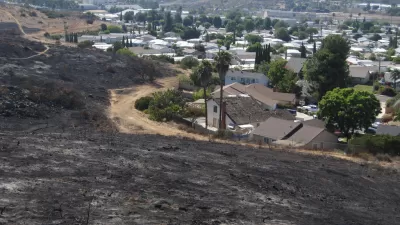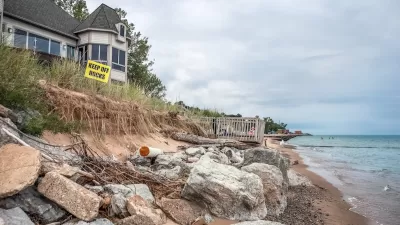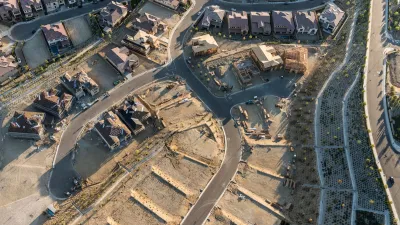About 350,000 residents have lost wildfire insurance in recent years, as a series of catastrophic fires have swept the state of California and insurance industry struggles to keep up with climate change.

Wildfire insurance is out of reach for many Californians, according to an article by Gireesh Shrimali, and the industry needs to adjust to the new climate realities of the state.
"Over the past several years, premiums have risen significantly – as much as 300% to 500% [pdf] in many cases. And in many high-risk areas, insurers are increasingly opting not to renew coverage," according to Shrimali. In all, 350,000 Californians have lost insurance coverage since a second year of catastrophic fires hit the state in 2018.
According to Shrimali, California needs a new way to calculate risk given the challenges of climate change in the state.
Challenges for insurers include the increasing severity of risk, the danger of adverse selection (when low-risk customers subsidize high-risk customers), and the effects of spiraling premiums.
To manage these risks, Shrimali suggests a few specific measures that would achieve better models for assessing and pricing risk as well as steps to ensure a "robust and guaranteed demand for wildfire insurance, which will attract private insurers into the market."
FULL STORY: In fire-prone California, many residents can’t afford wildfire insurance

Study: Maui’s Plan to Convert Vacation Rentals to Long-Term Housing Could Cause Nearly $1 Billion Economic Loss
The plan would reduce visitor accommodation by 25,% resulting in 1,900 jobs lost.

North Texas Transit Leaders Tout Benefits of TOD for Growing Region
At a summit focused on transit-oriented development, policymakers discussed how North Texas’ expanded light rail system can serve as a tool for economic growth.

Using Old Oil and Gas Wells for Green Energy Storage
Penn State researchers have found that repurposing abandoned oil and gas wells for geothermal-assisted compressed-air energy storage can boost efficiency, reduce environmental risks, and support clean energy and job transitions.

Private Donations Propel Early Restoration of Palisades Playground
Los Angeles has secured over $1.3 million in private funding to restore the Pacific Palisades playground months ahead of schedule, creating a modern, accessible space that supports community healing after recent wildfires.

From Blight to Benefit: Early Results From California’s Equitable Cleanup Program
The Equitable Community Revitalization Grant (ECRG) program is reshaping brownfield redevelopment by prioritizing projects in low-income and environmental justice communities, emphasizing equity, transparency, and community benefits.

Planting Relief: Tackling Las Vegas Heat One Tree at a Time
Nevada Plants, a Las Vegas-based nonprofit, is combating the city’s extreme urban heat by giving away trees to residents in underserved neighborhoods, promoting shade, sustainability, and community health.
Urban Design for Planners 1: Software Tools
This six-course series explores essential urban design concepts using open source software and equips planners with the tools they need to participate fully in the urban design process.
Planning for Universal Design
Learn the tools for implementing Universal Design in planning regulations.
Ascent Environmental
Borough of Carlisle
Institute for Housing and Urban Development Studies (IHS)
City of Grandview
Harvard GSD Executive Education
Toledo-Lucas County Plan Commissions
Salt Lake City
NYU Wagner Graduate School of Public Service





























